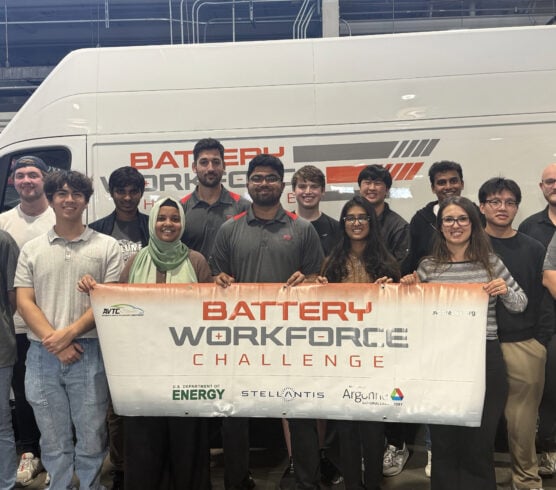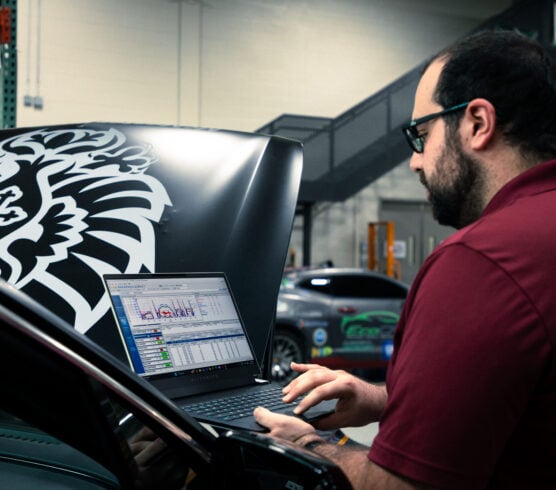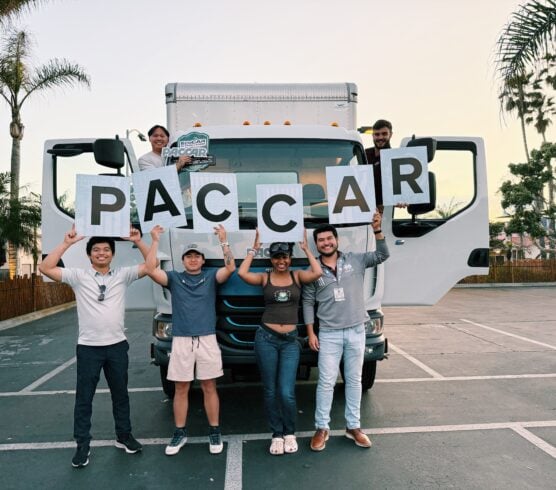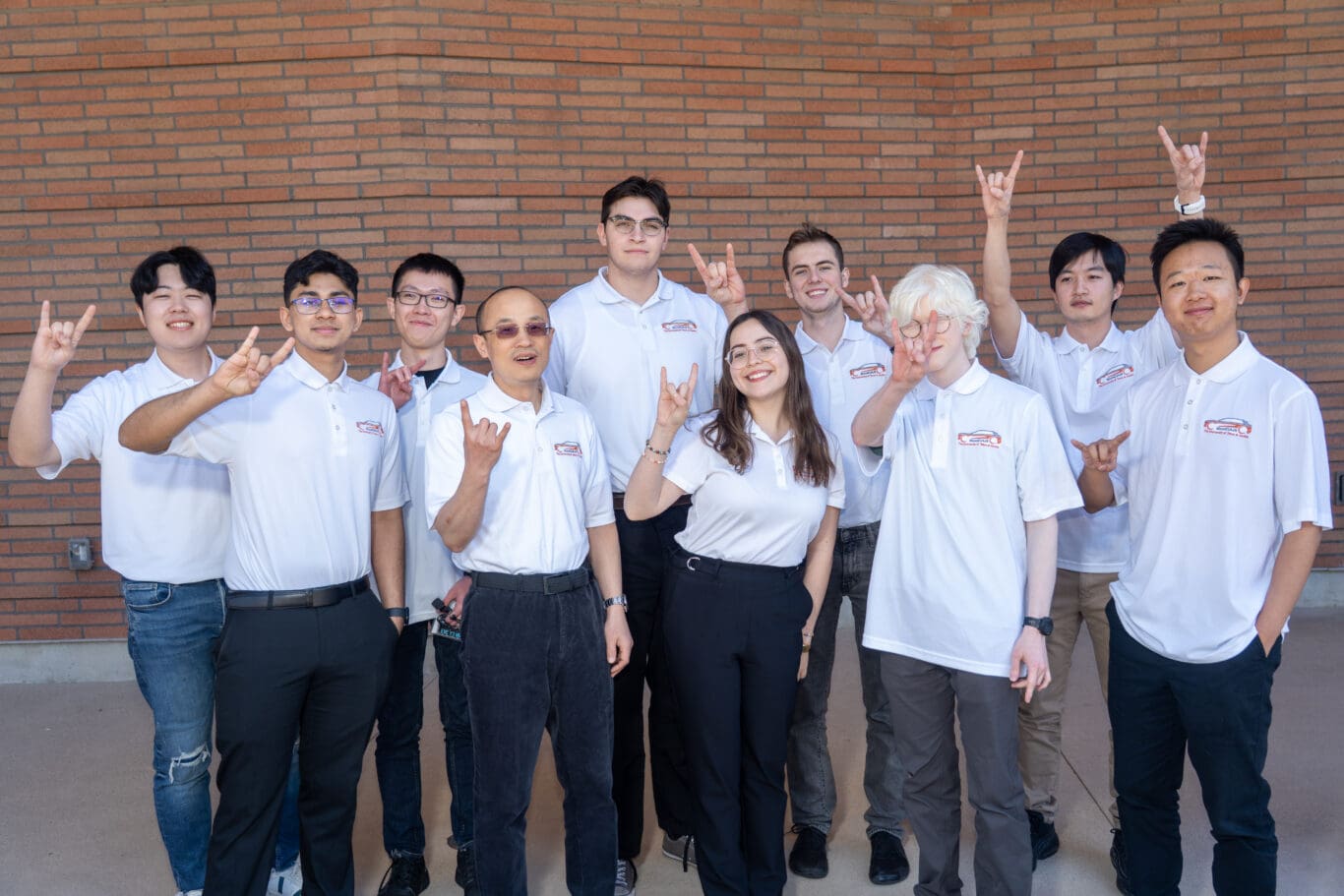
Written By: Fatima Sanchez
As spring brings warmer weather and new growth across Texas, the EcoCAR at UT-Austin team is gearing up for the Year 3 competition of the EcoCAR EV Challenge. Over the past year, the team has made significant progress with their Cadillac LYRIQ, “LEVA,” achieving key milestones across multiple technical domains.
To enhance team operations, our Project Manager implemented new project management tools introduced by program sponsors Altec and General Motors at this year’s workshop. By adopting frameworks such as the Work Breakdown Structure (WBS) and the RACI matrix, we’ve empowered our sub-team leads with strong organizational strategies and leadership practices.
Year 3 has been a pivotal phase for the UT-Austin team, marked by major advancements and challenges. Below are some of our most notable achievements—made possible through the dedication of our team members and the invaluable support of our sponsors.
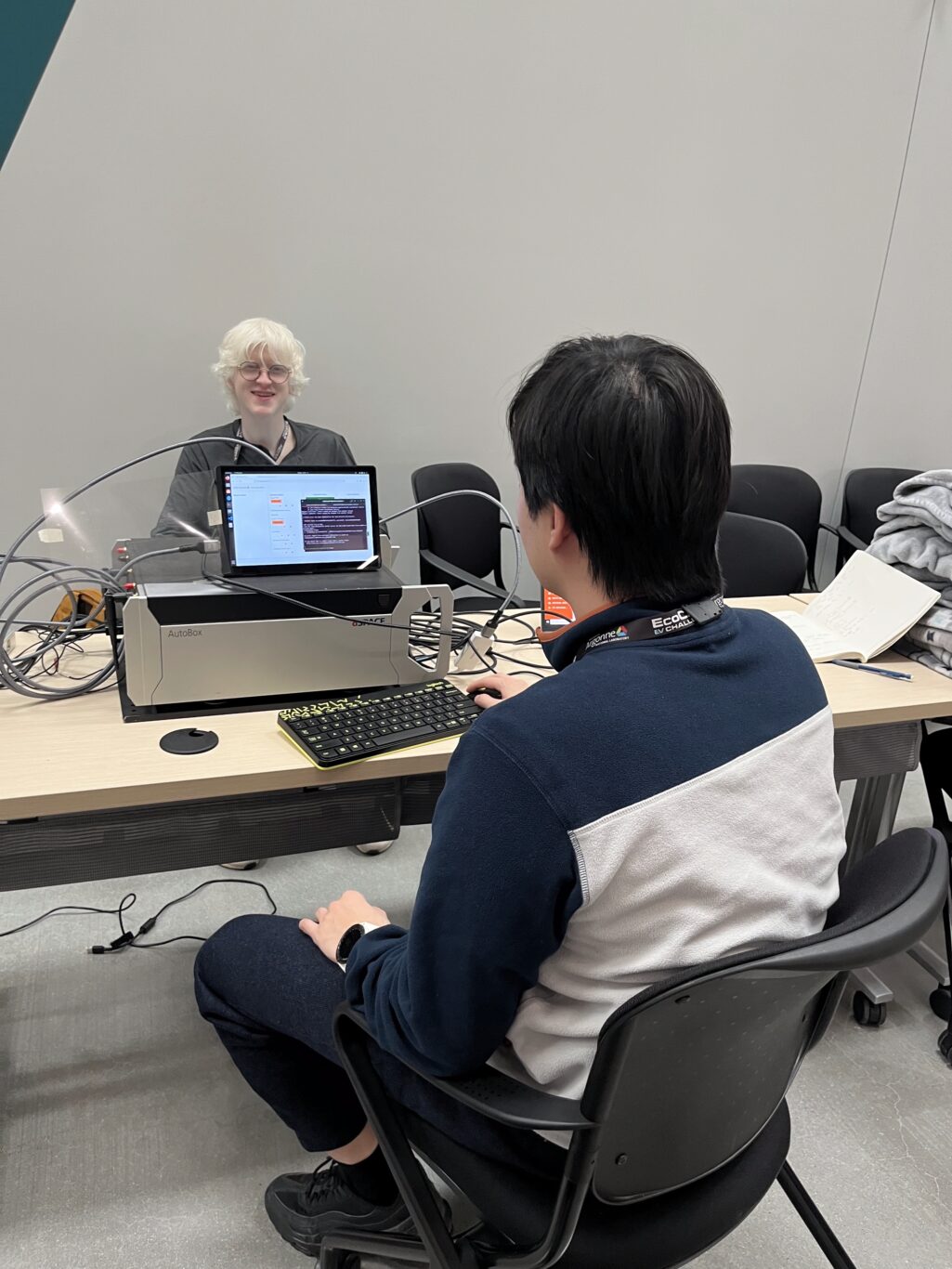
Connected and Automated Vehicle (CAV) Progress
Our CAV sub-team has significantly advanced LEVA’s software capabilities, including improvements to autonomous navigation, automatic parking, adaptive cruise control (ACC), and controller calibration. Using tools such as dSPACE ModelDesk, Aurelion, and RTMaps, the team conducted Software-in-the-Loop (SIL) testing, refining algorithms through rigorous simulation scenarios.
ACC capabilities were further developed through Hardware-in-the-Loop (HIL) testing using Speedgoat for the vehicle plant model and AUTERA for CAV controls. The team programmed custom Python code to enable the vehicle to maintain safe following distances and integrate controller calibration functionality directly via the RTMaps API.
These accomplishments would not have been possible without the expertise and generous support of dSPACE and Speedgoat, whose guidance has been instrumental to the team’s technical success.
Propulsion, Controls, and Modeling (PCM) Achievements
The PCM sub-team reached a major milestone by getting the vehicle fully operational and drivable. Through Model-in-the-Loop (MIL) simulations, the team validated and optimized calibration parameters, ensuring reliable performance and robust control systems.
As we look ahead to the Year 3 competition, we are incredibly proud of the progress we’ve made. We extend our sincere thanks to all of our sponsors, mentors, and supporters who have helped make this journey possible.
Hook ’em Horns!
